Nigeria Sends Crop Seeds into Space on NASA’s Crew-11 Mission Nigeria has taken a bold leap into the frontlines of international space research as the National Space Research and Development Agency (NASRDA) confirmed the nation’s participation in NASA’s highly anticipated Crew-11 Mission. Set to launch today (Friday) from the Kennedy Space Center in Cape Canaveral,
Nigeria Sends Crop Seeds into Space on NASA’s Crew-11 Mission

Nigeria has taken a bold leap into the frontlines of international space research as the National Space Research and Development Agency (NASRDA) confirmed the nation’s participation in NASA’s highly anticipated Crew-11 Mission. Set to launch today (Friday) from the Kennedy Space Center in Cape Canaveral, Florida, the mission marks a major milestone in Nigeria’s growing role in space science—this time, through agricultural innovation.
In a groundbreaking initiative under the World Seeds Payload program, six indigenous Nigerian crop seeds—okra, cowpea, guinea corn (sorghum), amaranth, maize, and melon—will be launched aboard the International Space Station (ISS). These seeds were selected for their high nutritional value, adaptability to diverse climatic conditions, and importance in local diets and farming systems.
The World Seeds Payload is a pioneering international agricultural experiment spearheaded by U.S.-based space research firm Jaguar Space. It includes scientific contributions from 11 countries, each submitting representative seeds to explore their behavior and resilience under the extreme conditions of microgravity.
Appeal Court Upholds Aiyedatiwa’s Ondo Victory As ADC Heads To Supreme Court
“Nigeria Joins the Future of Space Farming”
According to NASRDA, the mission is more than symbolic—it is a scientific stride towards addressing the twin challenges of global food security and climate resilience. Studying these Nigerian crops in space could unlock valuable data on how plants adapt and survive without gravity, information that could one day inform sustainable farming practices on Earth and in extraterrestrial environments.
“This mission, which features the World Seeds Payload, is a pioneering international agricultural experiment,” NASRDA said in an official statement. “The seeds will be studied aboard the ISS under microgravity conditions to explore their behaviour, resilience, and potential in future space-based farming.”
The agency emphasized that this is Nigeria’s first biological payload aboard a crewed NASA mission, a historic first that reflects both years of dedicated research and Nigeria’s increasing prominence in global space partnerships.
“We Are Proud to Represent Africa in This Groundbreaking Experiment”
Representing Nigeria at the launch is Olayinka Fagbemiro, NASRDA’s Assistant Director of International Cooperation and Linkages and the lead coordinator of the seed initiative. Fagbemiro played a central role in the project—from the seed selection process to logistical arrangements and diplomatic engagement with global stakeholders.
In a pre-launch message, she expressed pride in Nigeria’s participation, stating, “This project represents a new frontier for African science. We’re thrilled that Nigerian crops will be part of cutting-edge research aboard the ISS. It validates the hard work of our scientists and underscores the potential for space science to drive agricultural innovation in Africa.”
The seeds will remain aboard the ISS for several months, during which they will be exposed to microgravity, cosmic radiation, and other space conditions. Scientists from NASRDA, in collaboration with international partners, will closely monitor the seeds’ responses to the unique environment. Upon their return to Earth, the seeds will undergo comprehensive genetic and phenotypic analysis.
A Vision Beyond Earth: Why This Mission Matters
The significance of Nigeria’s participation goes beyond the technical achievement of sending biological samples into space. It reflects a broader strategy by NASRDA to make Nigeria a key player in the international space research community. It also demonstrates the country’s capability to contribute to global scientific challenges such as food insecurity, climate change, and sustainable agriculture.
“NASRDA’s involvement in this international mission not only validates years of local research on plant life in simulated space environments but also showcases the leadership role emerging space nations can play in shaping the future,” the agency stated.
Experts note that experiments like this are crucial for future space colonization efforts, where the ability to grow food in space will be essential. If Nigerian crops like cowpea or sorghum can thrive in zero gravity, it could redefine how space missions are supplied and pave the way for long-term human presence on the Moon, Mars, or beyond.
A Growing Space Legacy for Nigeria
With this mission, Nigeria joins a select group of countries contributing to space agriculture—a field that may soon be as vital as rocketry or satellite communications. It adds another chapter to NASRDA’s expanding portfolio, which includes satellite launches, space education, and Earth observation.
As the Crew-11 Mission prepares to lift off, the spotlight is not only on the astronauts aboard but also on the precious payload of seeds—symbols of hope, resilience, and scientific ambition. For NASRDA and Nigeria, it’s a proud moment and a step closer to a future where African science takes its rightful place among the stars.




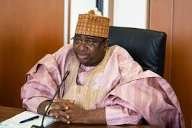
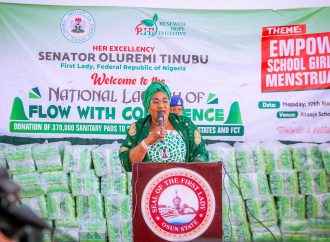
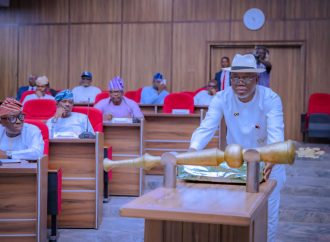





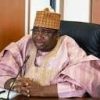
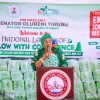
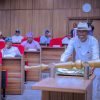




Leave a Comment
Your email address will not be published. Required fields are marked with *